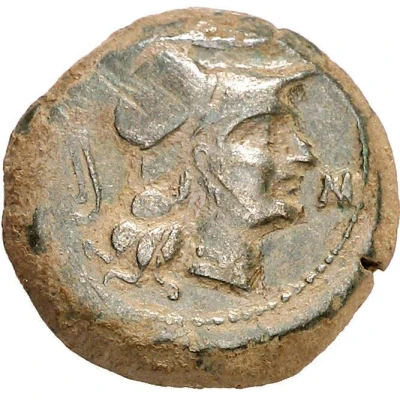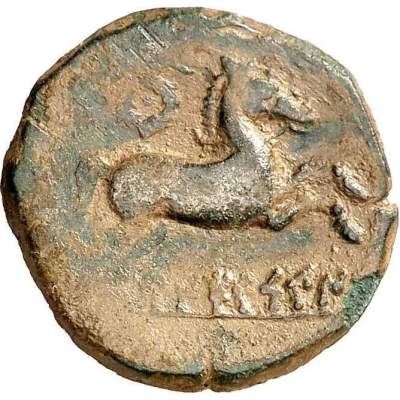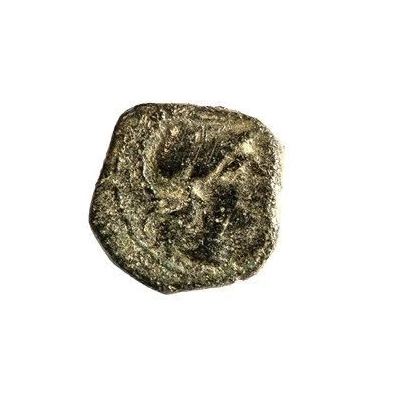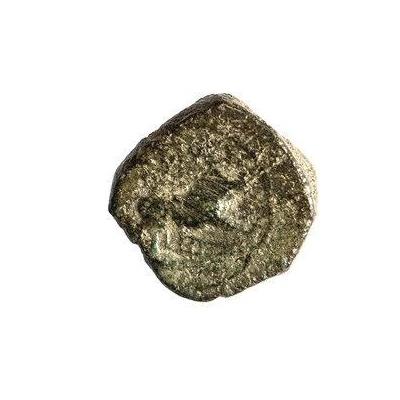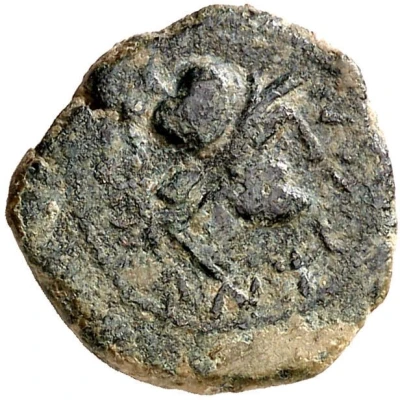
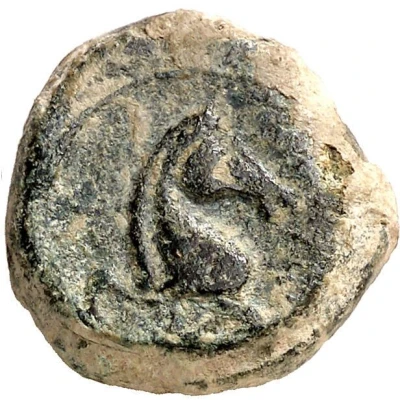

© Aureo & Calicó S.L., subastas numismáticas
Sextans head of horse 170 BC - 150 BC
| Bronze | 2.7 g | 15 mm |
| Issuer | Untikesken gens (Indigetes people) |
|---|---|
| Type | Standard circulation coin |
| Years | 170 BC - 150 BC |
| Value | 1 Sextans (⅙) |
| Currency | As (Roman pound system, 2nd century BC) |
| Composition | Bronze |
| Weight | 2.7 g |
| Diameter | 15 mm |
| Shape | Round (irregular) |
| Technique | Hammered |
| Orientation | Variable alignment ↺ |
| Demonetized | Yes |
| Updated | 2024-10-10 |
| Numista | N#339883 |
|---|---|
| Rarity index | 97% |
Reverse
Protome of horse facing right. Dolphin below.
Script: Iberian (Levantine)
Lettering: serkir
Comment
Legend in Northeastern Iberian scriptuntikesken
serkir
Interesting fact
The Sextans coin featuring the head of a horse and produced by the Untikesken gens (Indigetes people) is interesting because it was used as a form of currency during a time when the Roman Empire was expanding its territories and trade networks. Despite being made of bronze, a relatively common metal at the time, the coin's design and production were overseen by the Roman authorities to ensure its authenticity and value. This coin is a testament to the advanced economic systems and trade networks that existed in ancient civilizations.
